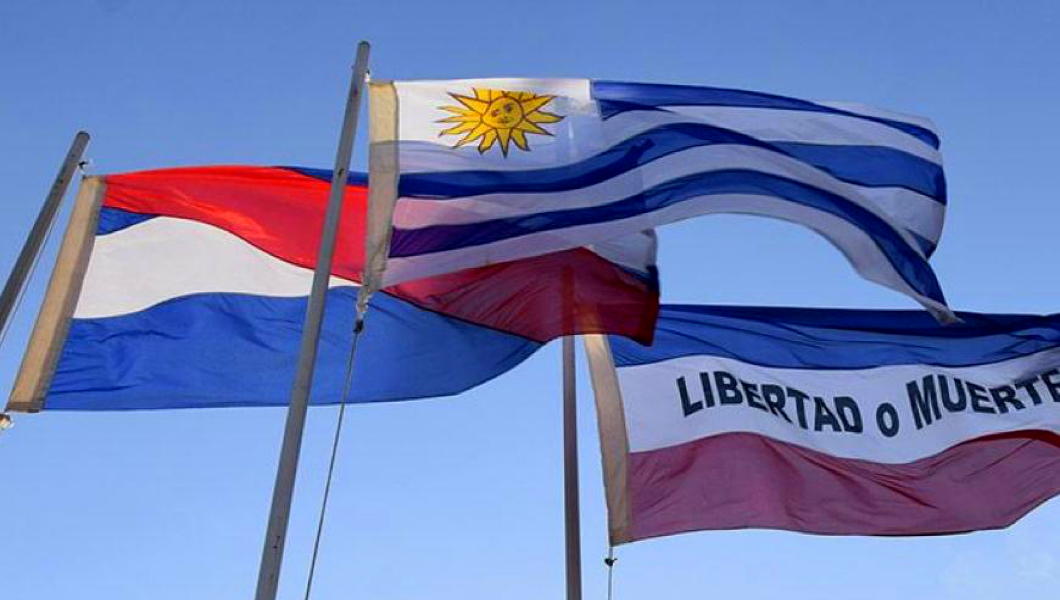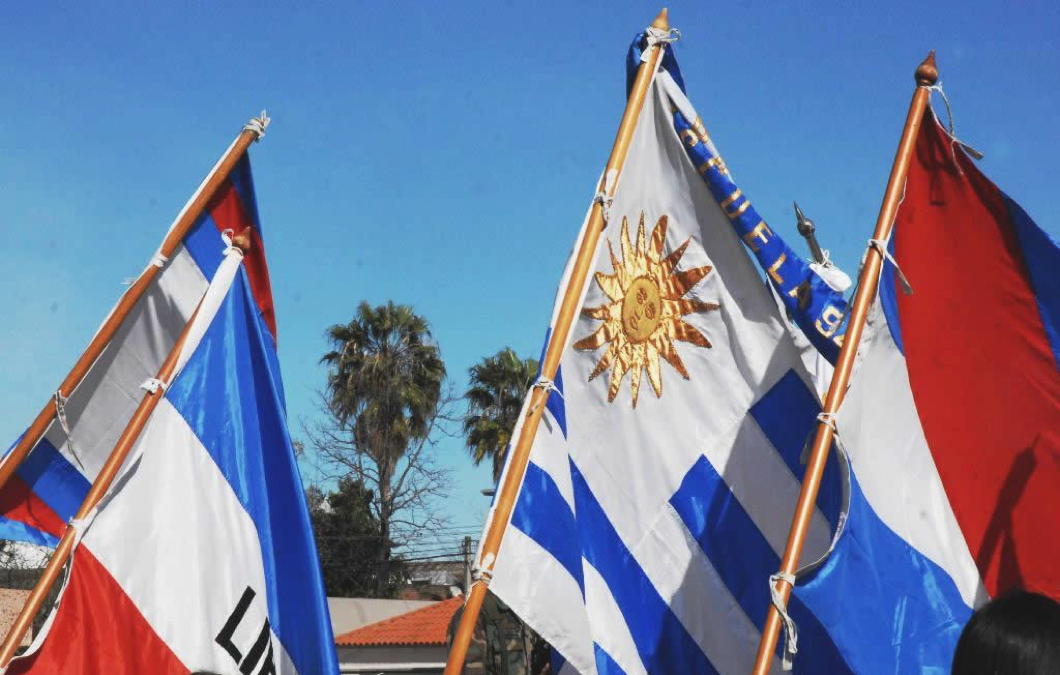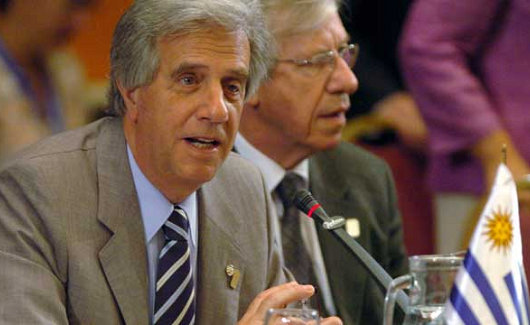Uruguay
About Andrew Cusack
 Writer, web designer, etc.; born in New York; educated in Argentina, Scotland, and South Africa; now based in London.
Writer, web designer, etc.; born in New York; educated in Argentina, Scotland, and South Africa; now based in London. read more
News
Blogs
Reviews & Periodicals
Arts & Design
World
France
Mitteleuropa
Knickerbockers
Argentina
The Levant
Africa
Cape of Good Hope
Netherlands
Scandinavia
Québec
India
Muscovy
Germany
Academica
The Three Flags of Uruguay
South America is a funnier place than most people expect and is full of odd curiosities. For example, most countries have one official name — e.g. ‘United States of America’ — whereas Argentina has three.
The 1853 constitution gives equal status to the names ‘United Provinces of the River Plate’, ‘Argentine Republic’, and ‘Argentine Confederation’, further detailing that ‘Argentine Nation’ should be used in the making and enactment of laws.
So far as I know, Argentina is also the only country whose name only comes in an adjectival form. We think of ‘Argentina’ as a noun, but it is actually an adjective — meaning silverine — that modifies ‘Republic’.
Referring to the country as ‘the Argentine’ was once fairly common, even predominant, in English but now seems a bit fogeyish. Nonetheless, it’s a more accurate translation.

While Argentina has three official names, today I learned that its smaller neighbour, the Oriental Republic of Uruguay, has three official flags.
Rather than add to the unceasing and useless repetition of the internet, I can happily link to the Danish vexillogist Anton Pihl who gives a useful and concise explanation and background to the three official flags of Uruguay.
Furthermore, Uruguay’s Artigas flag bears a great deal of similarity to the flag of the Argentine province of Entre Ríos which happens to sit right across the Uruguay river from Uruguay itself. The province’s name means ‘Between Rivers’ (the other river being the Paraná) which, of course, is a cognate of Mesopotamia far away.
And why is Uruguay the ‘Oriental Republic’? Because it’s the eastern bank of the Uruguay river.

Victory in Uruguay
Leftist president defies his own coalition, vetoes bill to legalize abortion.

The President of Uruguay, Dr. Tabaré Vázquez, has vetoed a bill passed by the two chambers of the country’s congress that would overturn the ban on abortion. Pre-natal infanticide has been illegal in Uruguay since 1938, and the left-wing Frente Amplio coalition that has a congressional majority sought to enact one of the most permissive abortion laws in Latin America. While President Vázquez, an oncologist by training, is a member of the Frente Amplio party, his constituent group in the alliance is the Christian-Democratic Party which proclaims as part of its platform an “absolute respect for human rights”. The veto sends the bill back to the congress, where the Frente does not have the two-thirds majority necessary to override the veto.
Search
Instagram: @andcusack
Click here for my Instagram photos.Most Recent Posts
- Silver Jubilee November 21, 2024
- Articles of Note: 11 November 2024 November 11, 2024
- Why do you read? November 5, 2024
- India November 4, 2024
- The Lithe Efficiency of the Old Constitution November 4, 2024
Most Recent Comments
Book Wishlist
Monthly Archives
Categories


